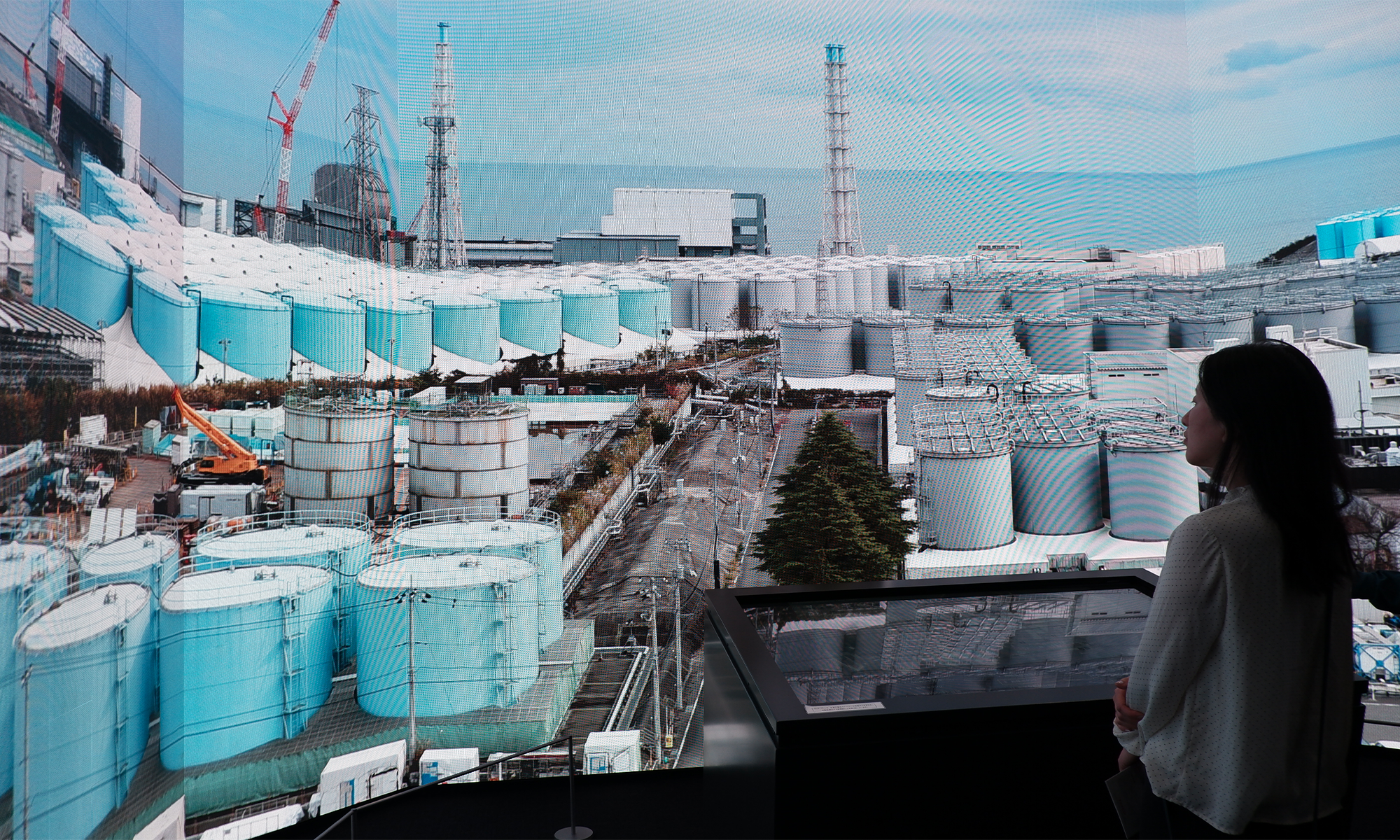Editor's Note:
Despite strong opposition at home and abroad, the Japanese government and the Tokyo Electric Power Company (TEPCO) are set to go ahead with the plan to dump the nuclear-contaminated wastewater from the Fukushima Daiichi Nuclear Power Plant into the sea this summer.
As summer approaches, Global Times (GT) reporters went to the Fukushima Prefecture. The reporters noticed a palpable sense of fear and unease hanging over Fukushima, coupled with intense opposition from locals who chanted "Never allow arbitrary dumping into the sea!" Photos: Xu Keyue and Xing Xiaojing/GT
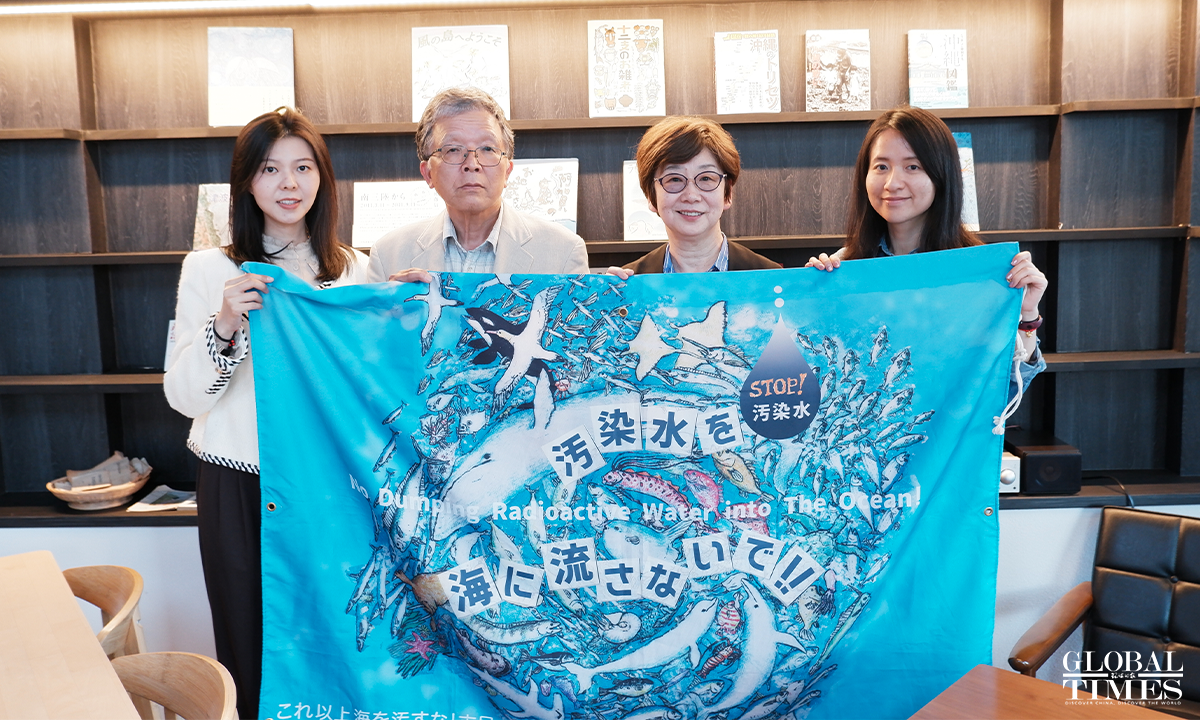 Chiyo Oda and Tsutomu Yoneyama, members of the environmental NGO "Stop Polluting the Oceans!" hold a banner with GT reporters on May 9, 2023. The banner reads "Don't discharge the polluted water into the sea!" Photo: GT
Chiyo Oda and Tsutomu Yoneyama, members of the environmental NGO "Stop Polluting the Oceans!" hold a banner with GT reporters on May 9, 2023. The banner reads "Don't discharge the polluted water into the sea!" Photo: GT 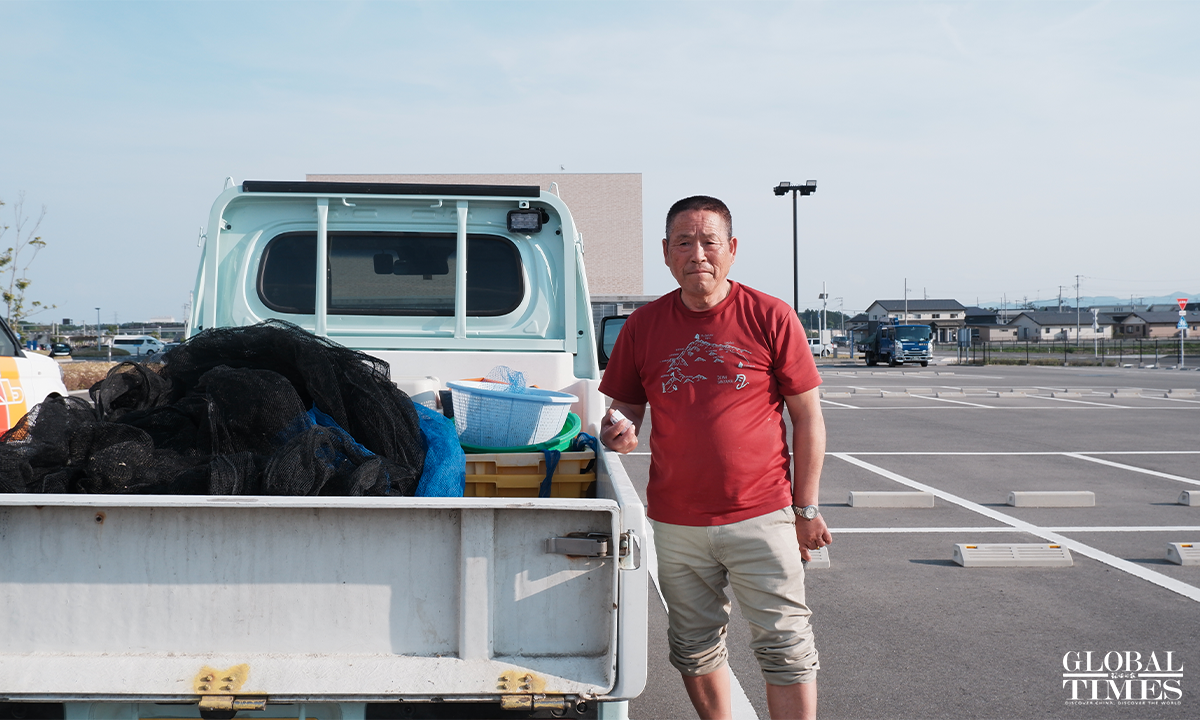 Haruo Ono, a Fukushima fisherman, stands by his car with a fishing net after finishing an interview with the Global Times on May 10, 2023. Photo: Xu Keyue/GT
Haruo Ono, a Fukushima fisherman, stands by his car with a fishing net after finishing an interview with the Global Times on May 10, 2023. Photo: Xu Keyue/GT 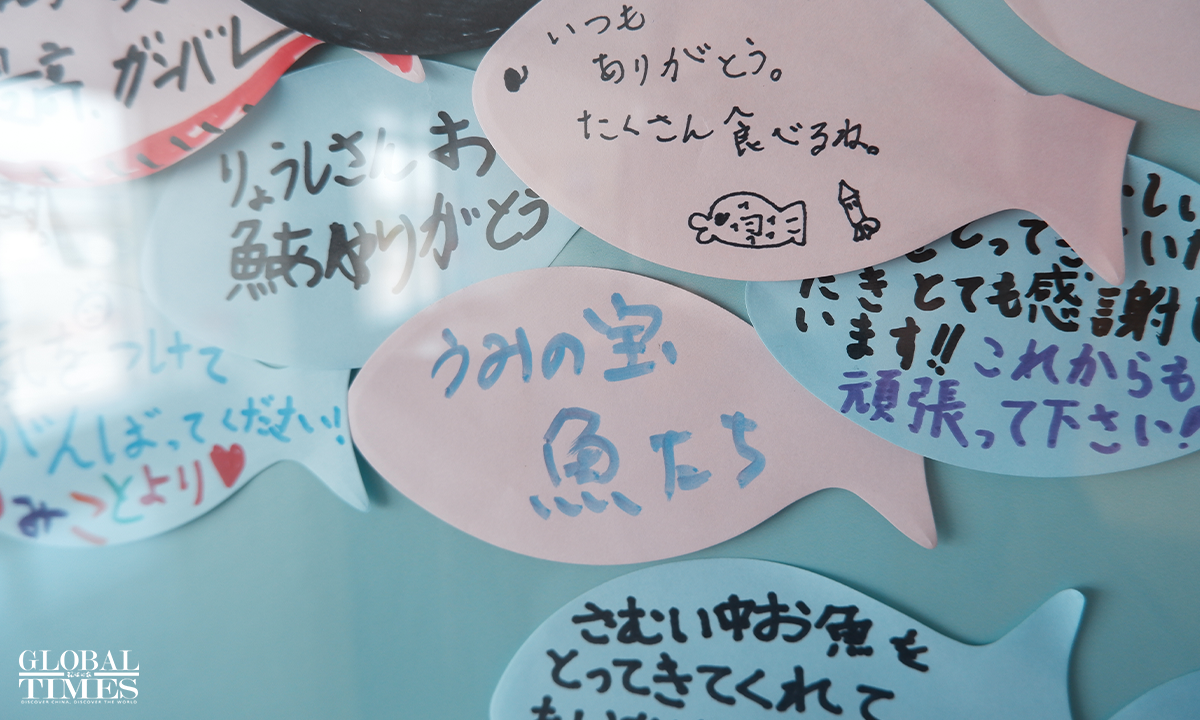 A sticker that reads "treasure of the sea - fish" is seen on the wall in the building of the Fukushima Prefectural Federation of Fisheries Cooperative Associations on May 11, 2023. Photo: Xu Keyue/GT
A sticker that reads "treasure of the sea - fish" is seen on the wall in the building of the Fukushima Prefectural Federation of Fisheries Cooperative Associations on May 11, 2023. Photo: Xu Keyue/GT 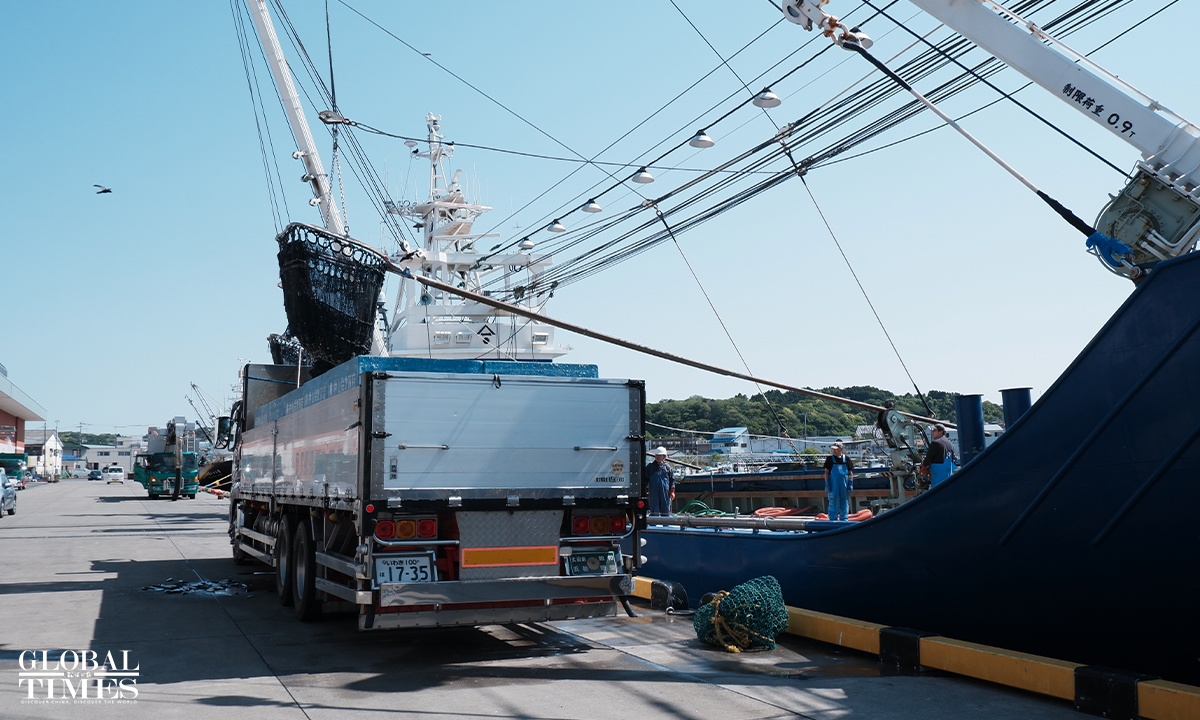 In Onahama fishing port, Fukushima Prefecture, fishermen load their catch onto a waiting truck on May 11, 2023. Photo: Xu Keyue/GT
In Onahama fishing port, Fukushima Prefecture, fishermen load their catch onto a waiting truck on May 11, 2023. Photo: Xu Keyue/GT 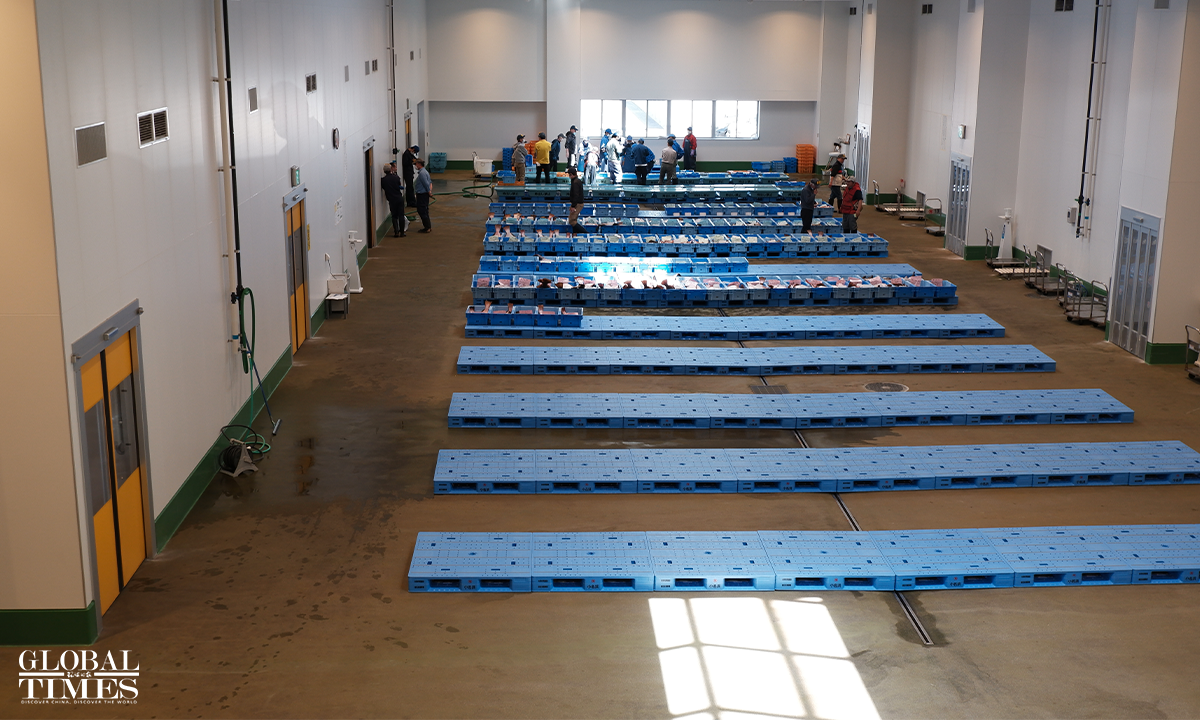 Seafood trading begins at 11 am on May 11, 2023 at the Onahama fish market. Photo: Xu Keyue/GT
Seafood trading begins at 11 am on May 11, 2023 at the Onahama fish market. Photo: Xu Keyue/GT 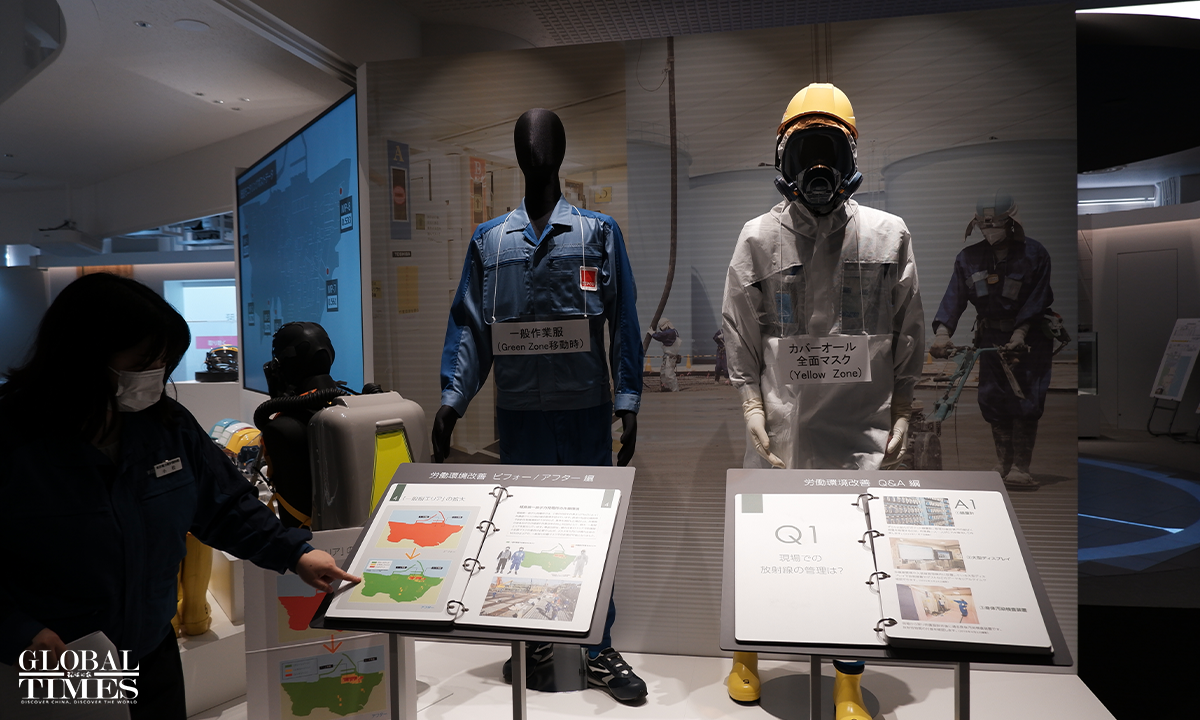 A staff member introduces radiation protection suits at the TEPCO Decommissioning Archive Center in Japan on May 10, 2023. Photo: Xu Keyue/GT
A staff member introduces radiation protection suits at the TEPCO Decommissioning Archive Center in Japan on May 10, 2023. Photo: Xu Keyue/GT 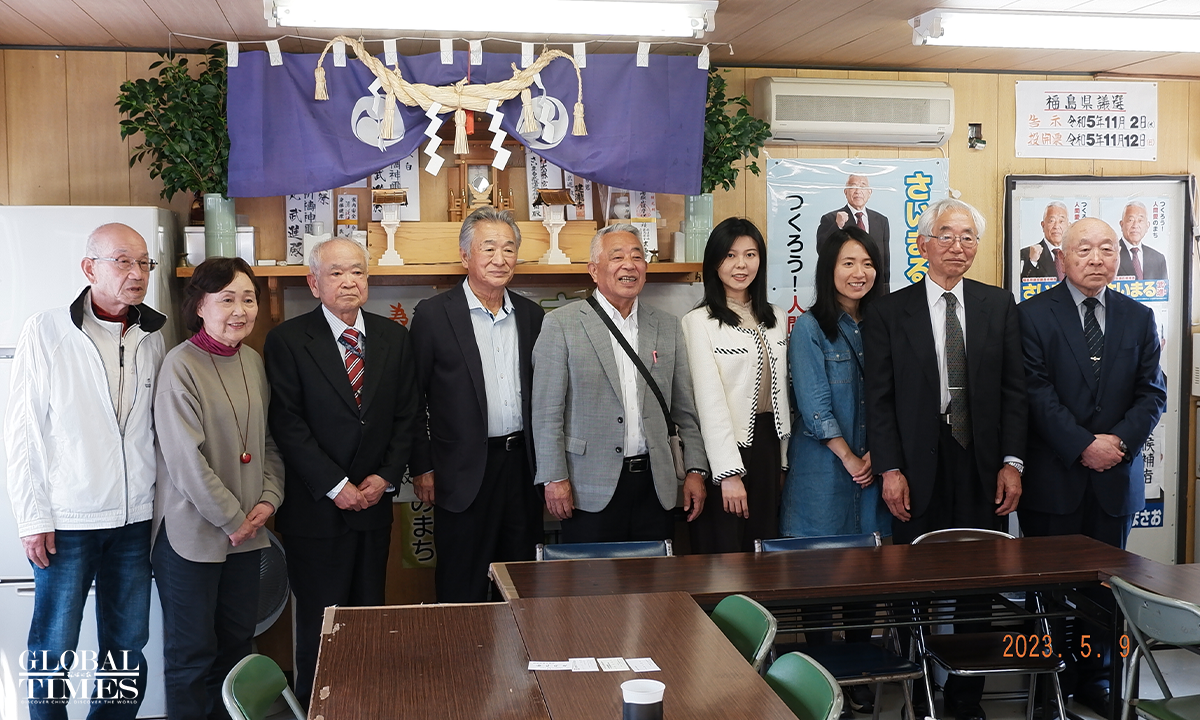 Bushin Saimaru (center), a lawmaker in Fukushima Prefecture, poses for a photo with his friends and GT reporters after receiving an interview on May 9, 2023. Photo: GT
Bushin Saimaru (center), a lawmaker in Fukushima Prefecture, poses for a photo with his friends and GT reporters after receiving an interview on May 9, 2023. Photo: GT 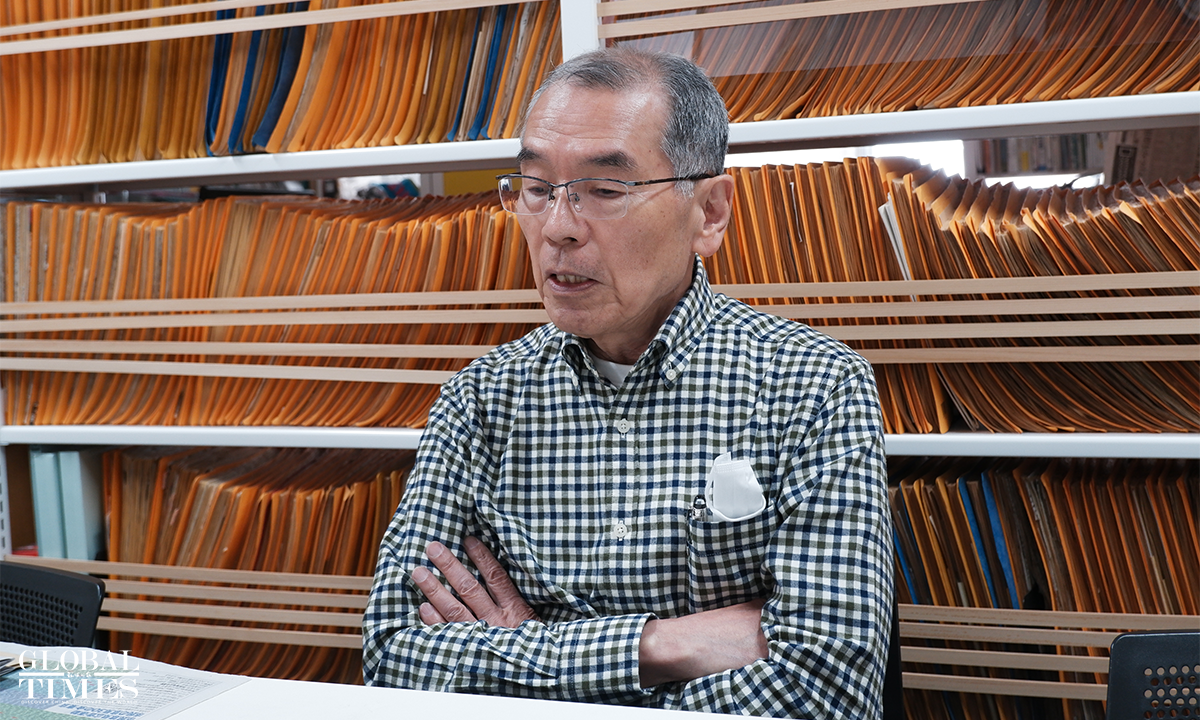 Hideyuki Ban, a Japanese nuclear expert and co-director of the Tokyo-based Citizens' Nuclear Information Center (CNIC) Photo: Xu Keyue/GT
Hideyuki Ban, a Japanese nuclear expert and co-director of the Tokyo-based Citizens' Nuclear Information Center (CNIC) Photo: Xu Keyue/GT 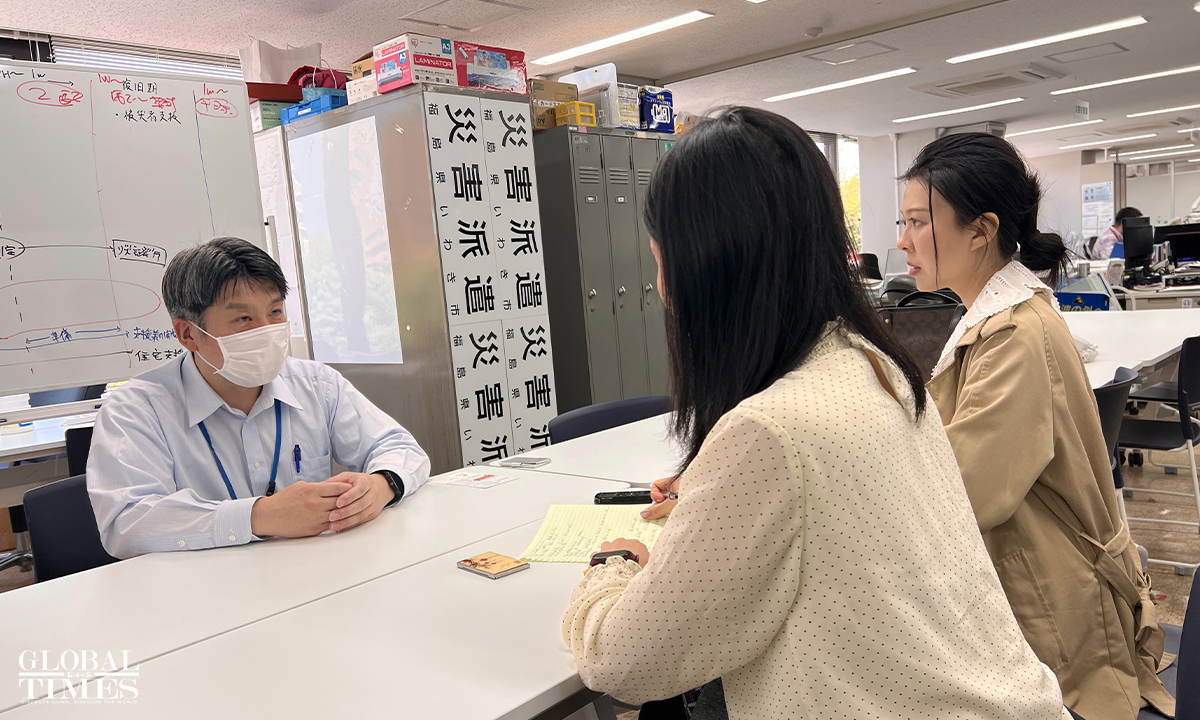 Kohei Kusano, director of the atomic power response section of the crisis management department in Iwaki, Fukushima Prefecture, Japan, receives an interview with the Global Times on May 11, 2023. Photo: GT
Kohei Kusano, director of the atomic power response section of the crisis management department in Iwaki, Fukushima Prefecture, Japan, receives an interview with the Global Times on May 11, 2023. Photo: GT 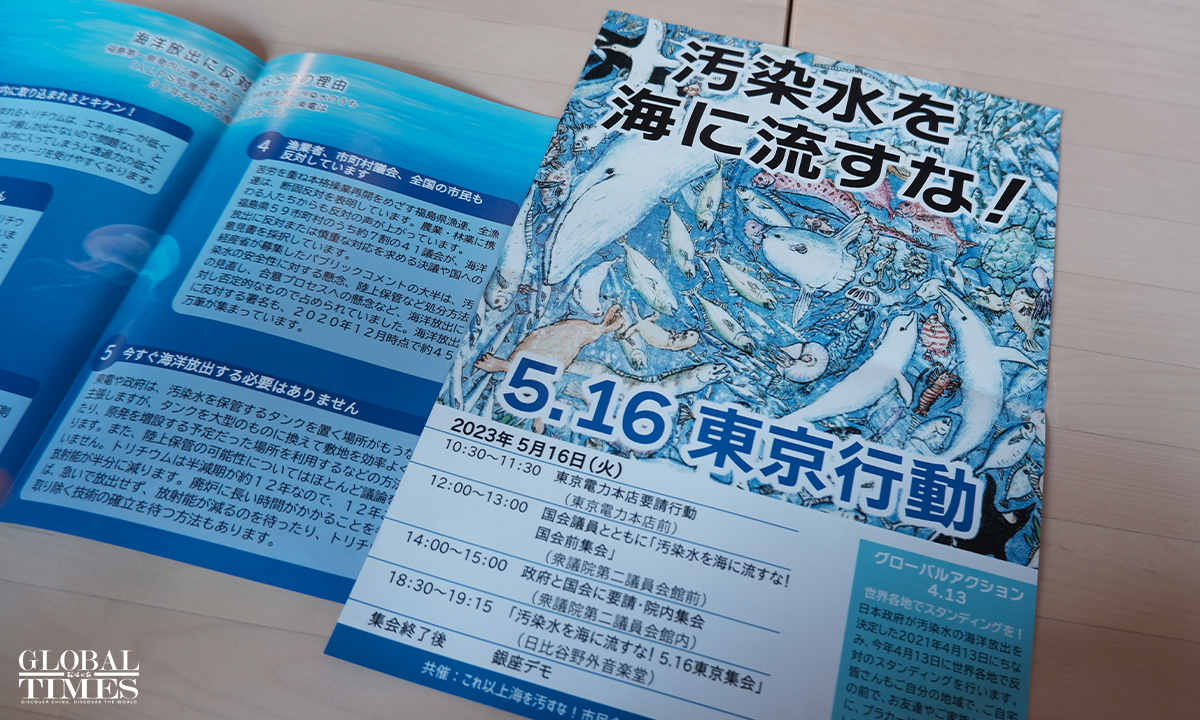 Leaflet for a Japanese civic campaign protesting against the plan to dump nuclear-contaminated wastewater Photo: Xu Keyue/GT
Leaflet for a Japanese civic campaign protesting against the plan to dump nuclear-contaminated wastewater Photo: Xu Keyue/GT 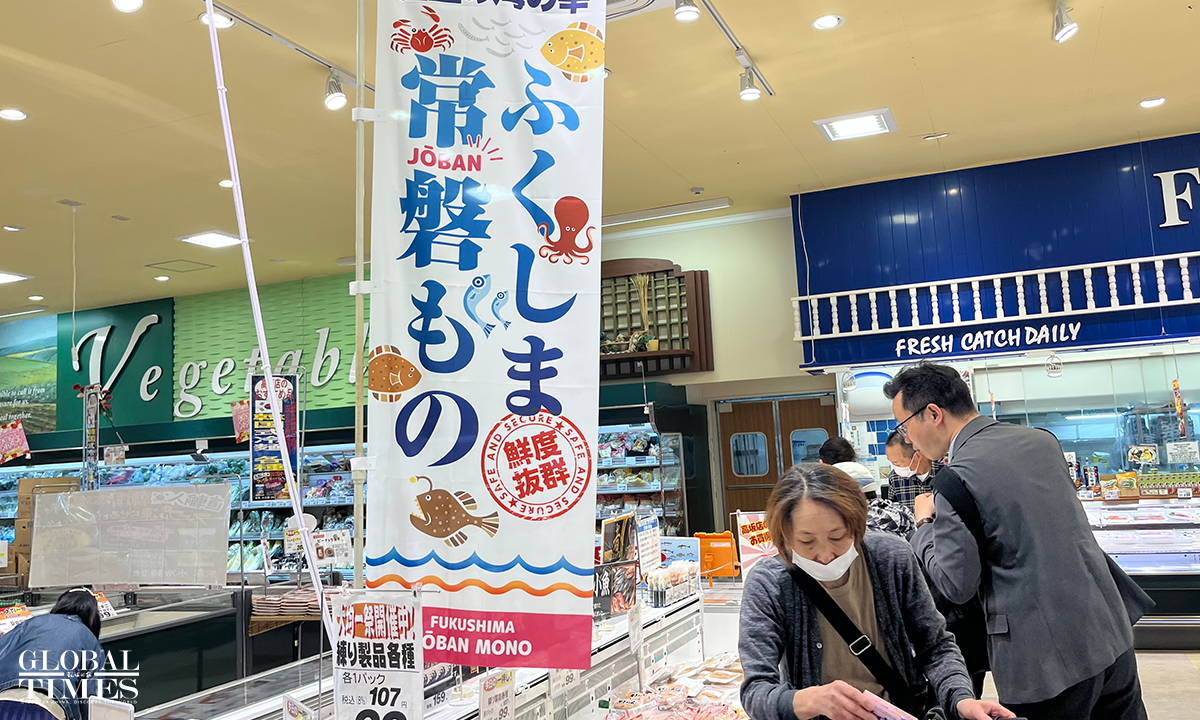 At the seafood shelf in a supermarket located in Iwaki, Fukushima Prefecture, Japan, where Jobanmono (seafood from Fukushima and Ibaraki) is displayed, the labels on the seafood products indicate that they are sourced from other countries or regions, including Russia and the US. Photo: Xu Keyue/GT
At the seafood shelf in a supermarket located in Iwaki, Fukushima Prefecture, Japan, where Jobanmono (seafood from Fukushima and Ibaraki) is displayed, the labels on the seafood products indicate that they are sourced from other countries or regions, including Russia and the US. Photo: Xu Keyue/GT 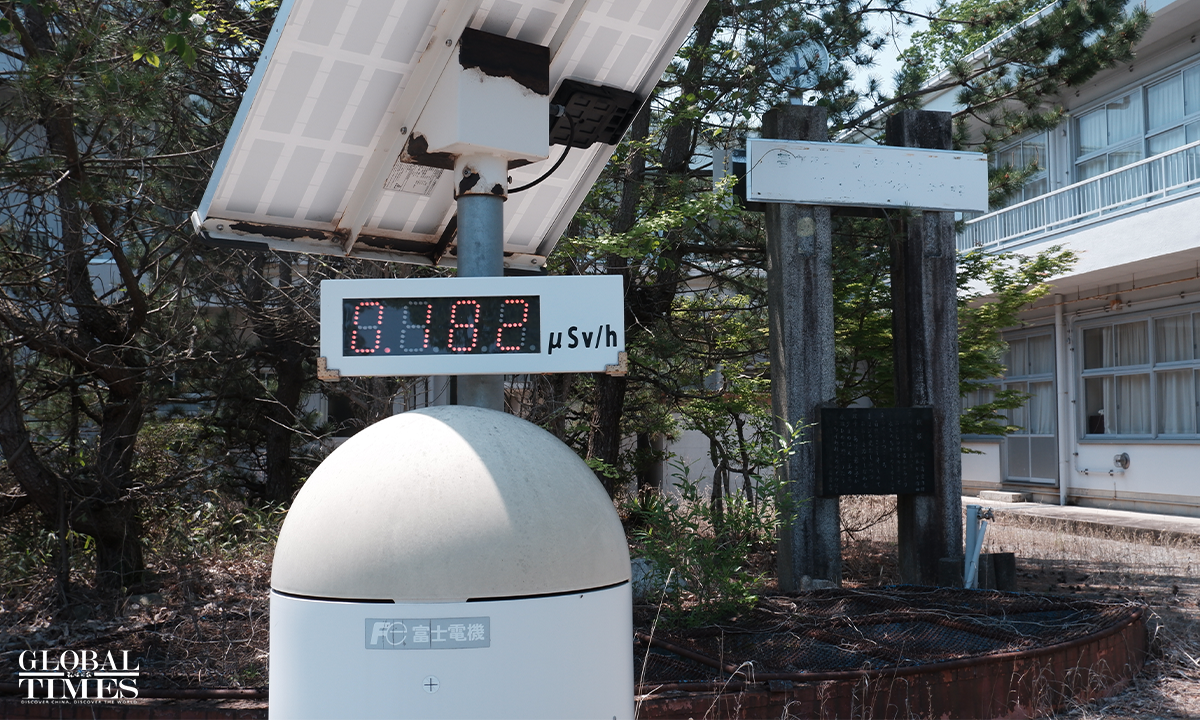 A radiation detector is placed in front of the remains of a local elementary school in Futaba, Fukushima, which was hit by an earthquake on March 11, 2011, in Japan. Photo: Xu Keyue/GT
A radiation detector is placed in front of the remains of a local elementary school in Futaba, Fukushima, which was hit by an earthquake on March 11, 2011, in Japan. Photo: Xu Keyue/GT 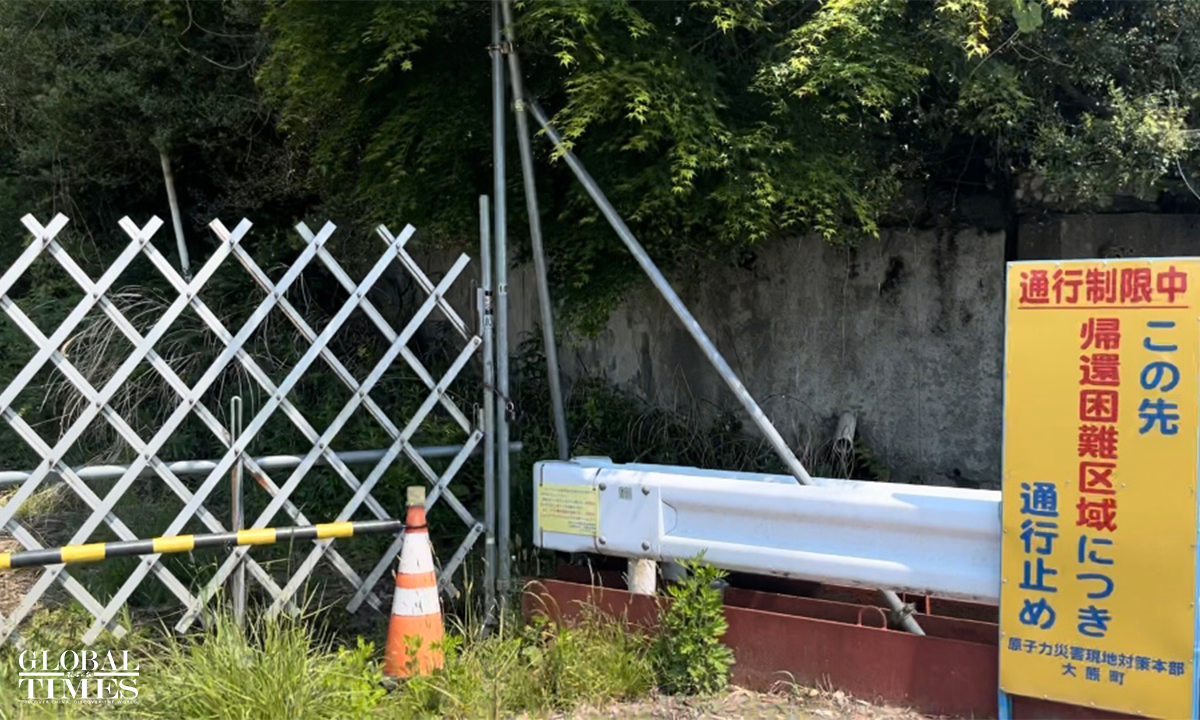 Photo: GT
Photo: GT 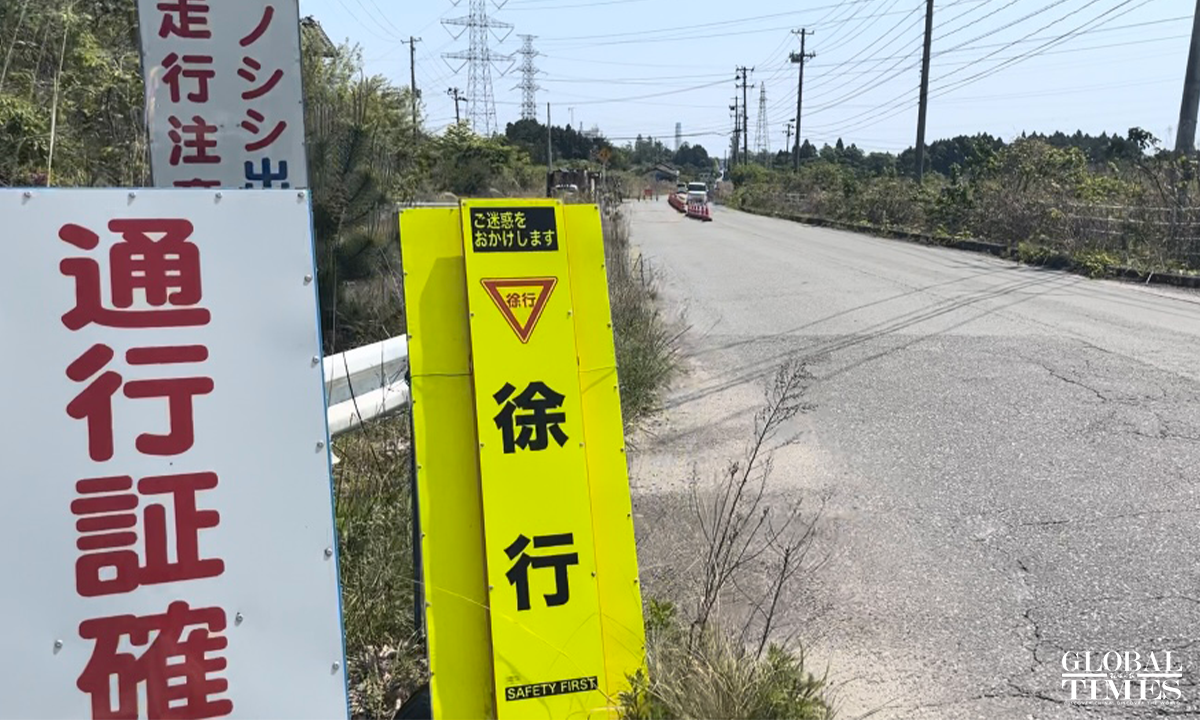 One kilometer away from the Fukushima Daiichi Nuclear Power Plant, a sign reading "pass card confirmation" is placed to control the entry into the area on May 10, 2023. Photo: Xu Keyue/GT
One kilometer away from the Fukushima Daiichi Nuclear Power Plant, a sign reading "pass card confirmation" is placed to control the entry into the area on May 10, 2023. Photo: Xu Keyue/GT 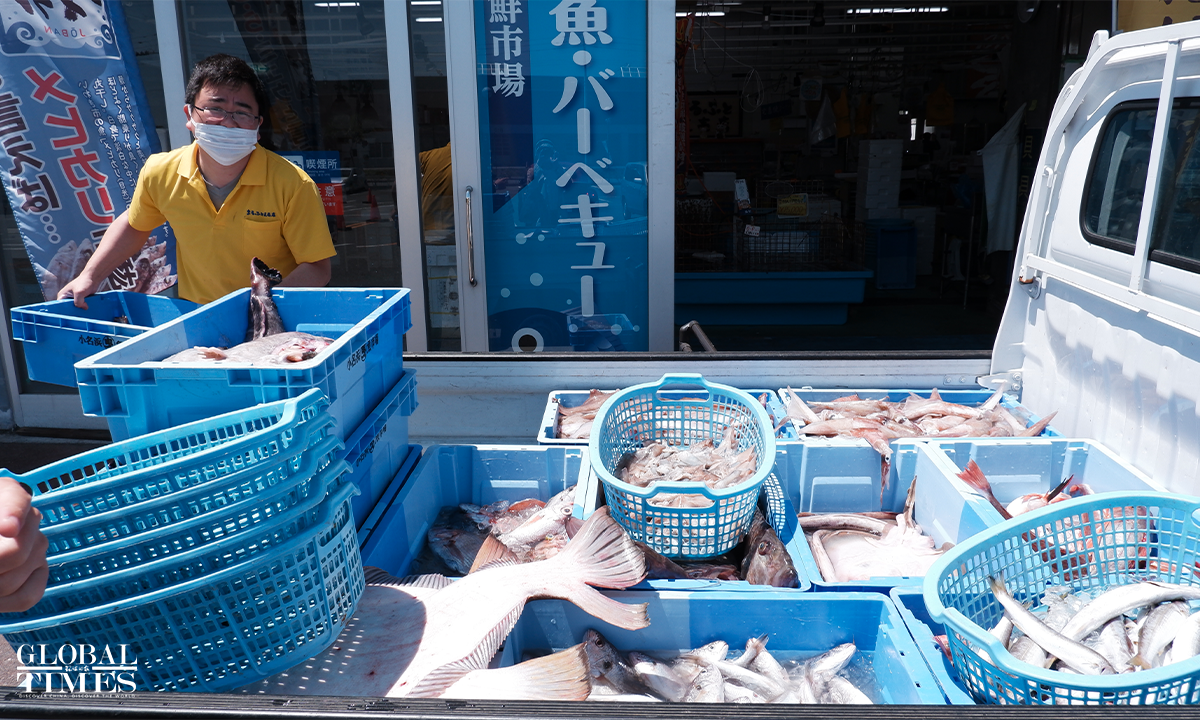 Photo: GT
Photo: GT 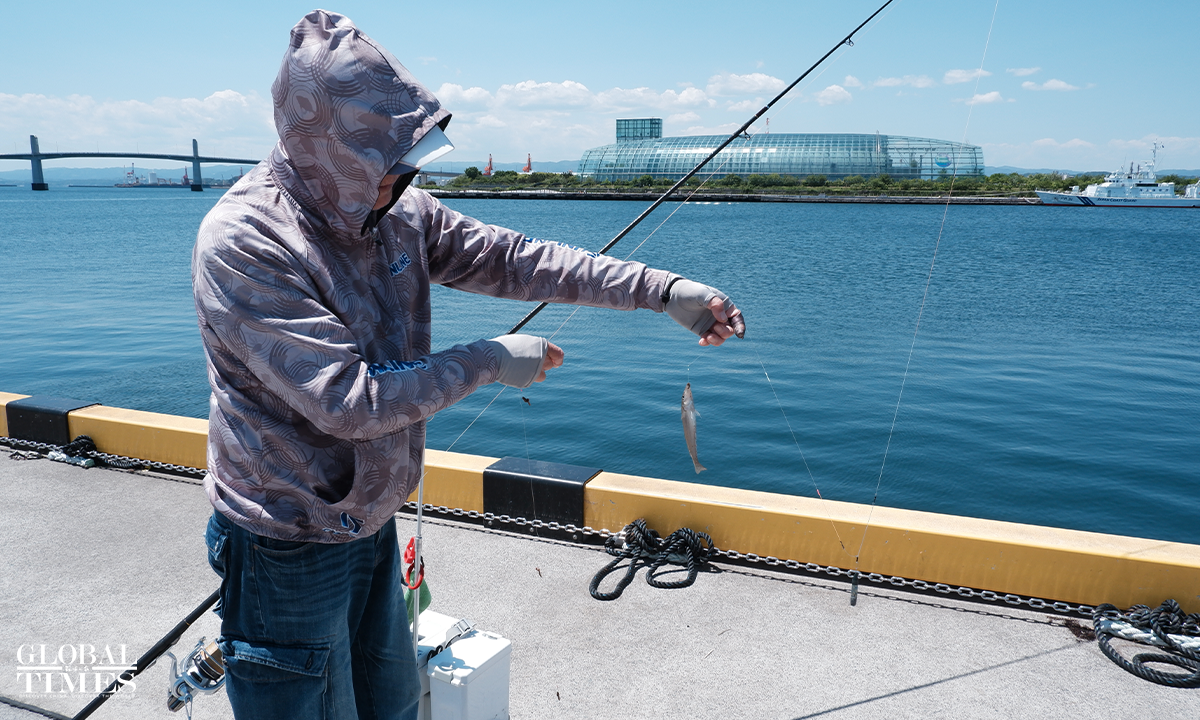 Photo: GT
Photo: GT 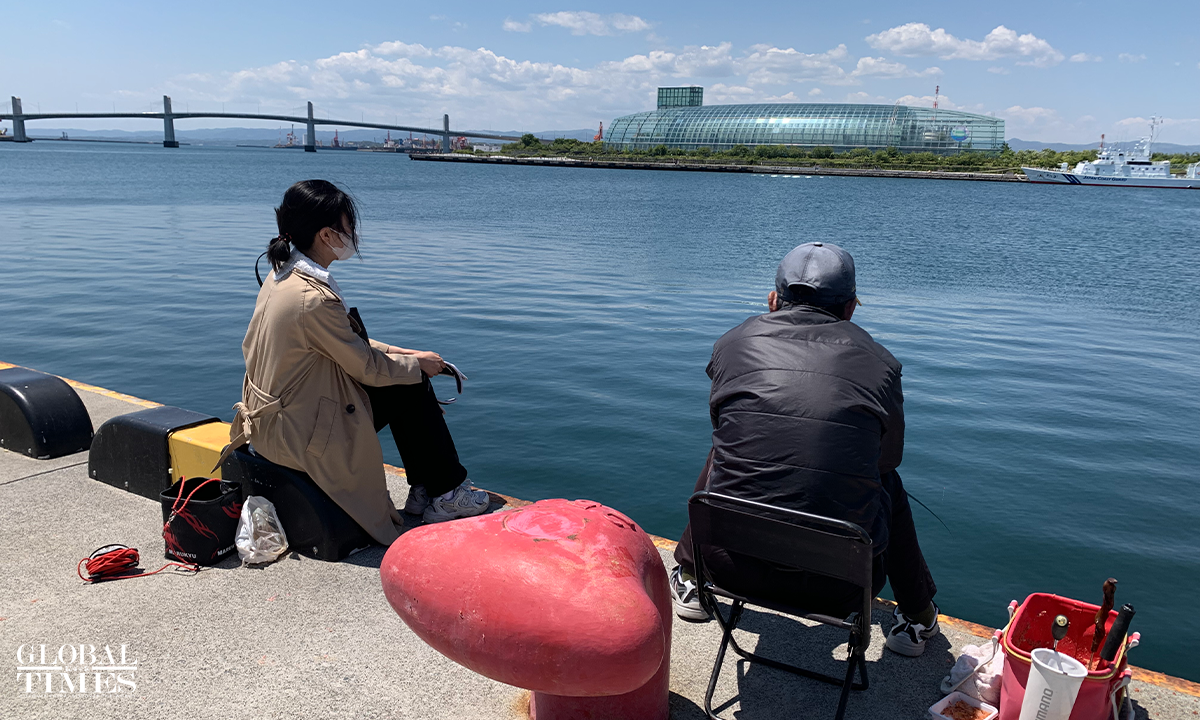 A GT reporter talks with a Japanese elderly man fishing at the Onahama fishing port on May 11, 2023. Photo: GT
A GT reporter talks with a Japanese elderly man fishing at the Onahama fishing port on May 11, 2023. Photo: GT 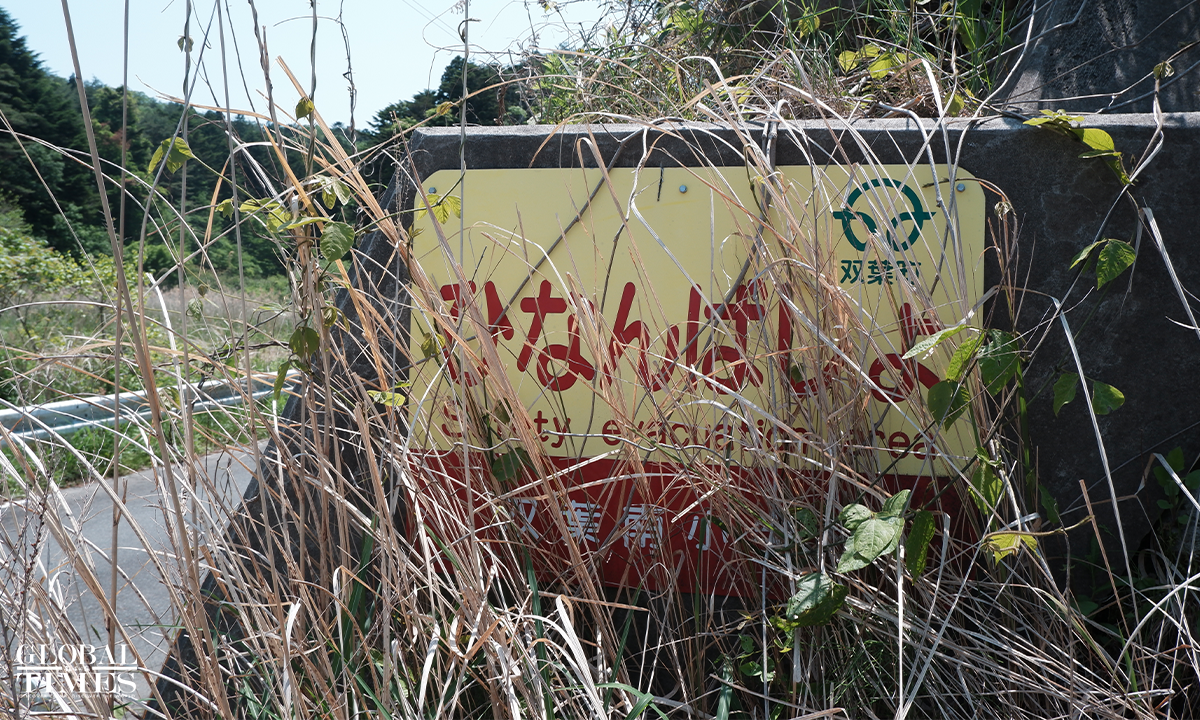 The door plate of Futaba Minami Elementary School is seen on May 10, 2023 covered by overgrown weeds on May 11, 2023, after the school was hit by the March 11 earthquake in Japan in 2011. Photo: Xu Keyue/GT
The door plate of Futaba Minami Elementary School is seen on May 10, 2023 covered by overgrown weeds on May 11, 2023, after the school was hit by the March 11 earthquake in Japan in 2011. Photo: Xu Keyue/GT 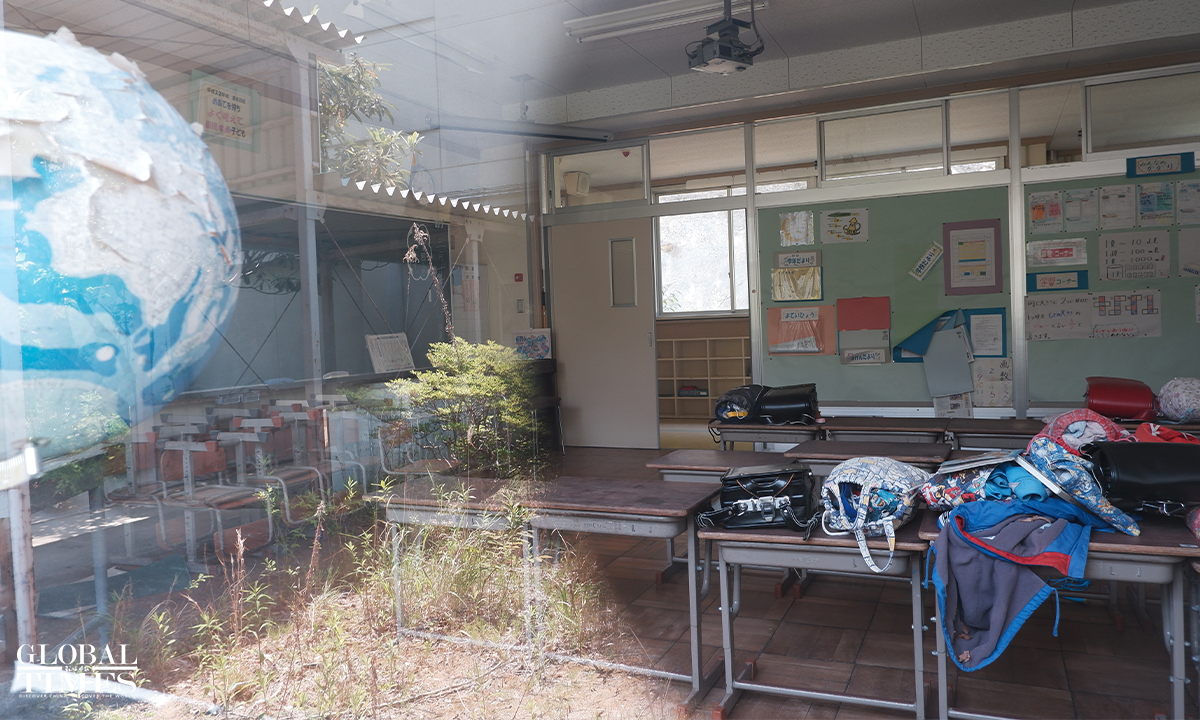 Remains of Futaba Minami Elementary School in Iwaki, Fukushima Prefecture, Japan, are seen on May 10, 2023. Photo: Xu Keyue/GT
Remains of Futaba Minami Elementary School in Iwaki, Fukushima Prefecture, Japan, are seen on May 10, 2023. Photo: Xu Keyue/GT 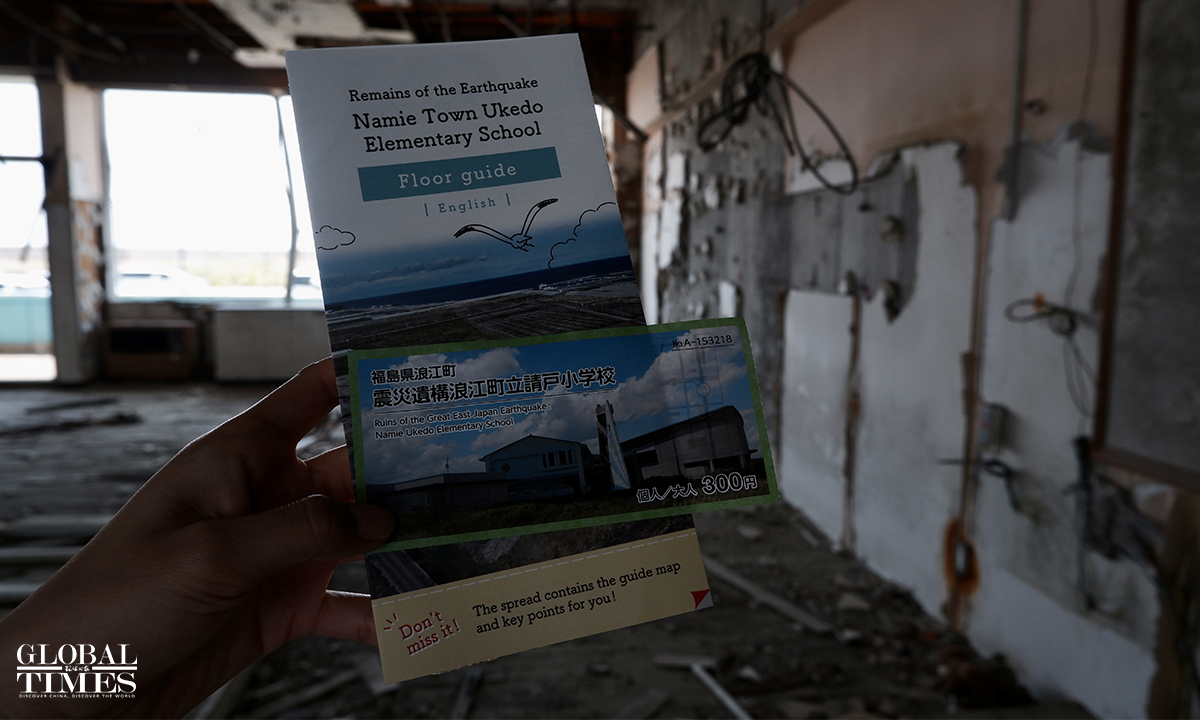 Remains of Ukedo Elementary School in Namie town, Fukushima, are seen on May 10, 2023. Photo: Xu Keyue/GT
Remains of Ukedo Elementary School in Namie town, Fukushima, are seen on May 10, 2023. Photo: Xu Keyue/GT 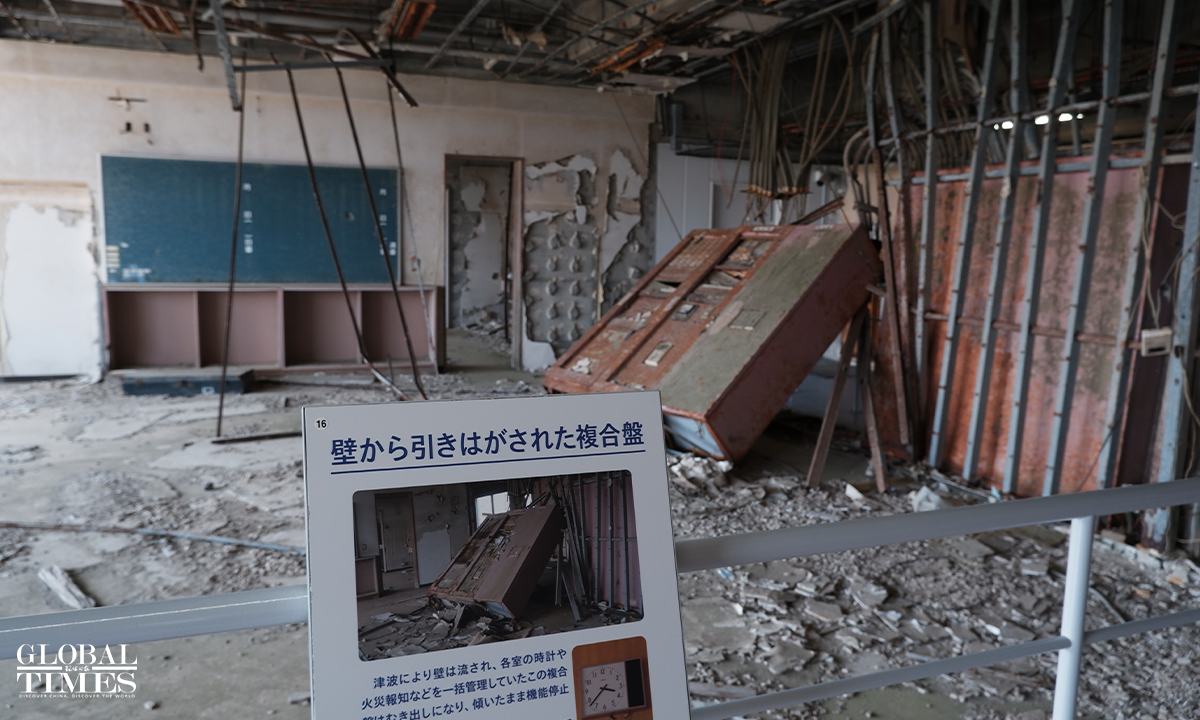 Remains of Ukedo Elementary School in Namie town, Fukushima, are seen on May 10, 2023. Photo: Xu Keyue/GT
Remains of Ukedo Elementary School in Namie town, Fukushima, are seen on May 10, 2023. Photo: Xu Keyue/GT 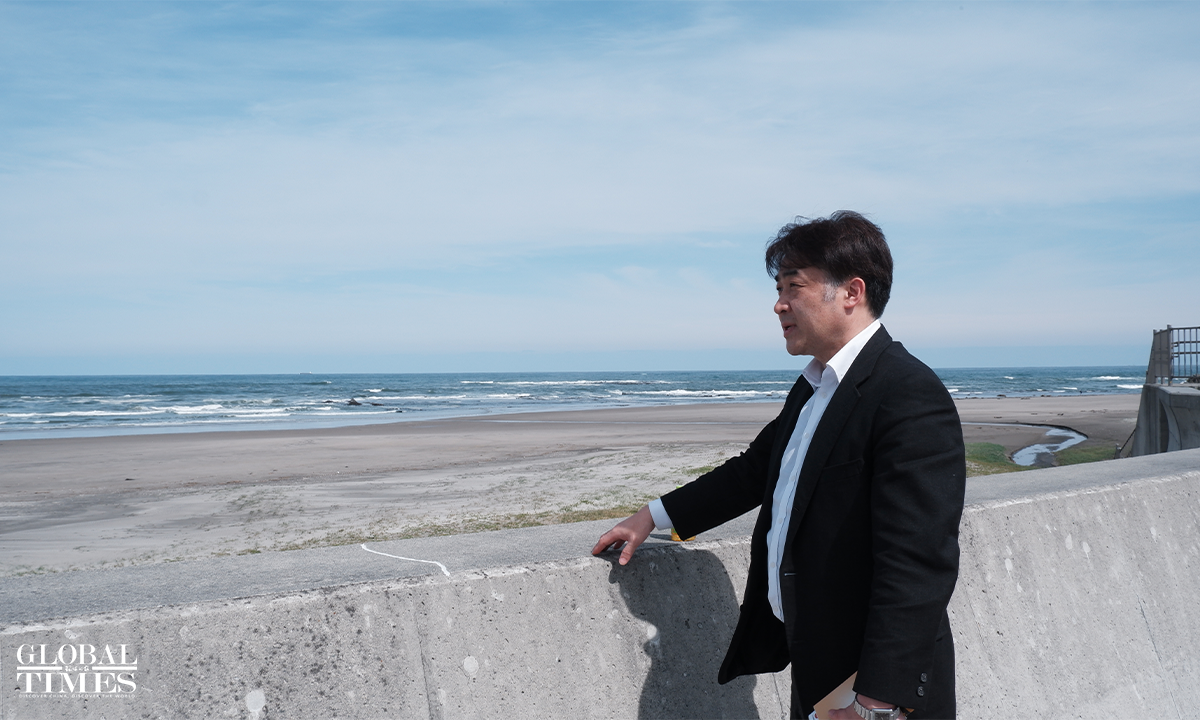 Yoshitaka Ikarashi, the Japanese representative of the Somei Platform - the Japan-China common market promotion association, tells the Global Times in Iwaki, Fukushima on May 9, 2023, that he wants to protect the sea. Photo: Xu Keyue/GT
Yoshitaka Ikarashi, the Japanese representative of the Somei Platform - the Japan-China common market promotion association, tells the Global Times in Iwaki, Fukushima on May 9, 2023, that he wants to protect the sea. Photo: Xu Keyue/GT 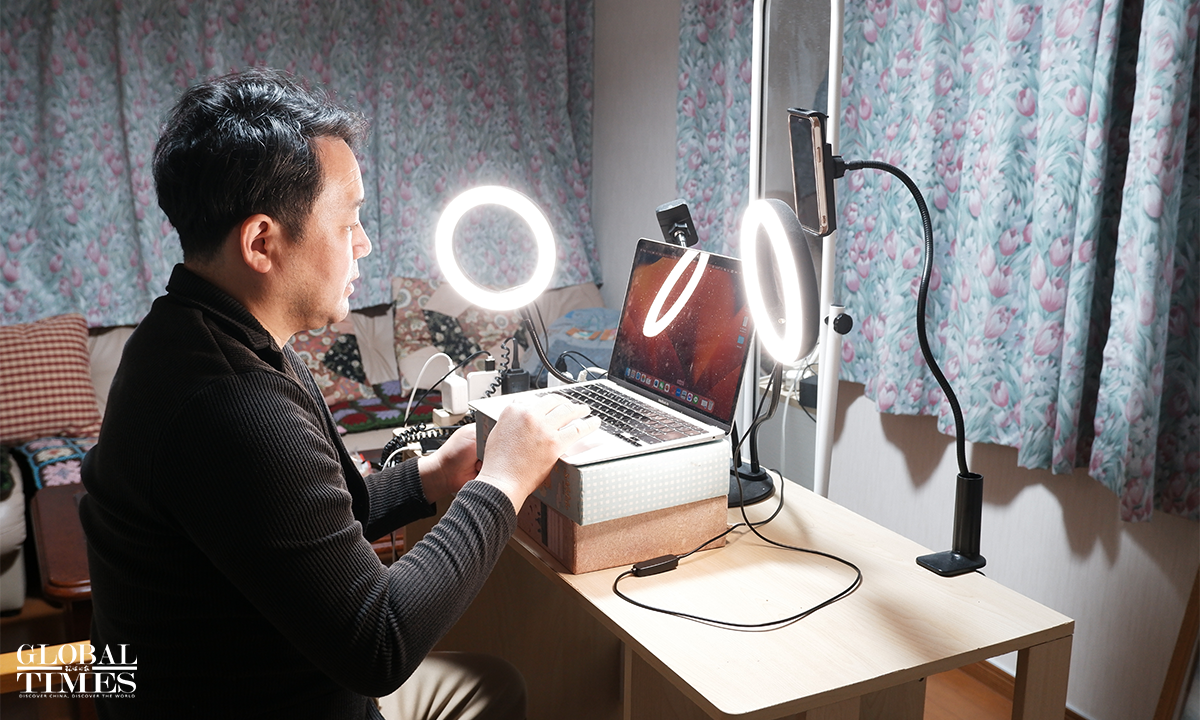 Koji Oikawa, a Japanese teacher in Iwaki, sits before a laptop showing his remote teaching equipment on May 10, 2023. He recently received 23 Chinese students at the request of the Japanese Reconstruction Agency to talk about the safety of Fukushima food and the results of Fukushima's revitalization program, a part of the PR stunts by the Japanese government. Photo: Xu Keyue/GT
Koji Oikawa, a Japanese teacher in Iwaki, sits before a laptop showing his remote teaching equipment on May 10, 2023. He recently received 23 Chinese students at the request of the Japanese Reconstruction Agency to talk about the safety of Fukushima food and the results of Fukushima's revitalization program, a part of the PR stunts by the Japanese government. Photo: Xu Keyue/GT























